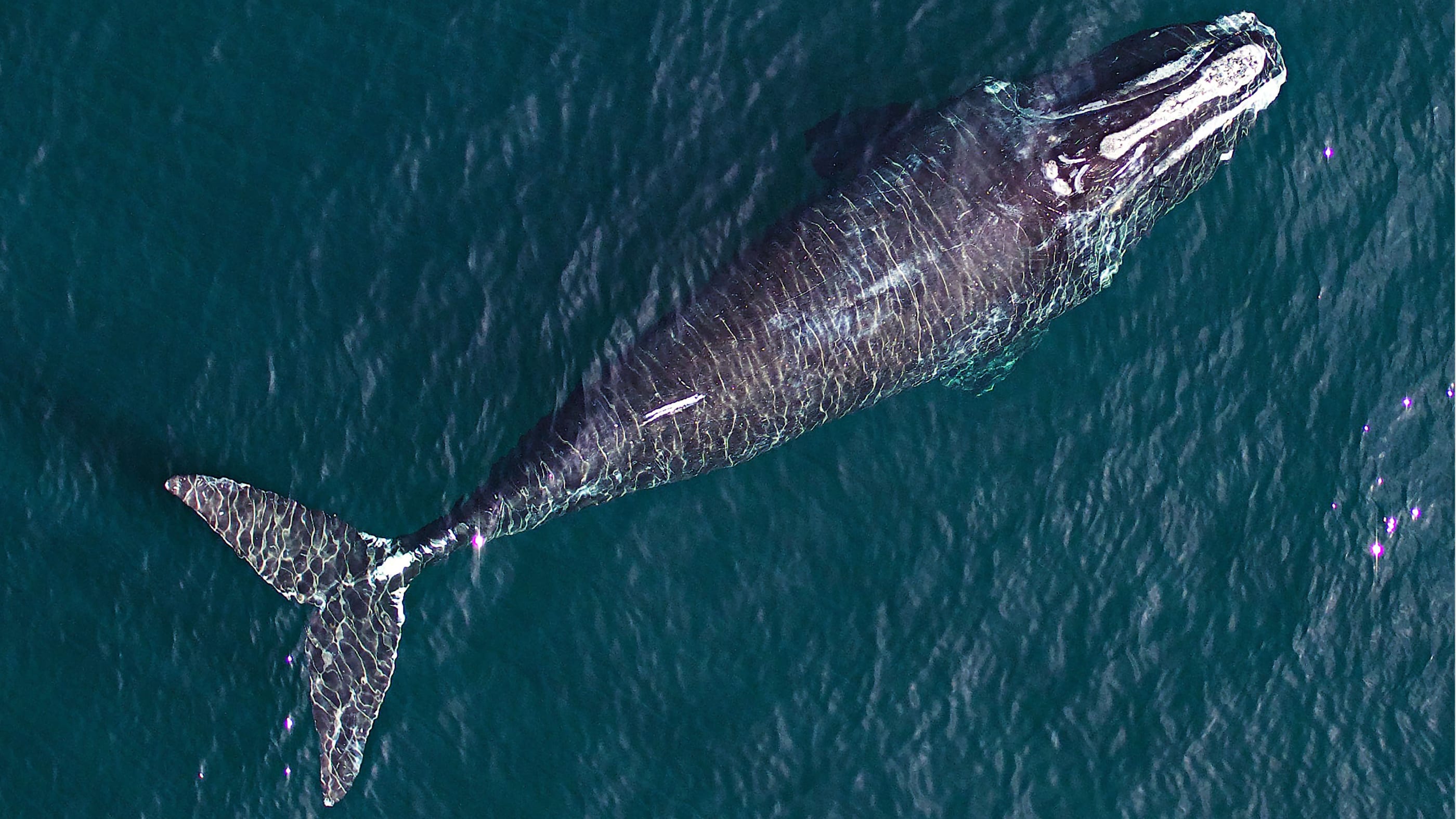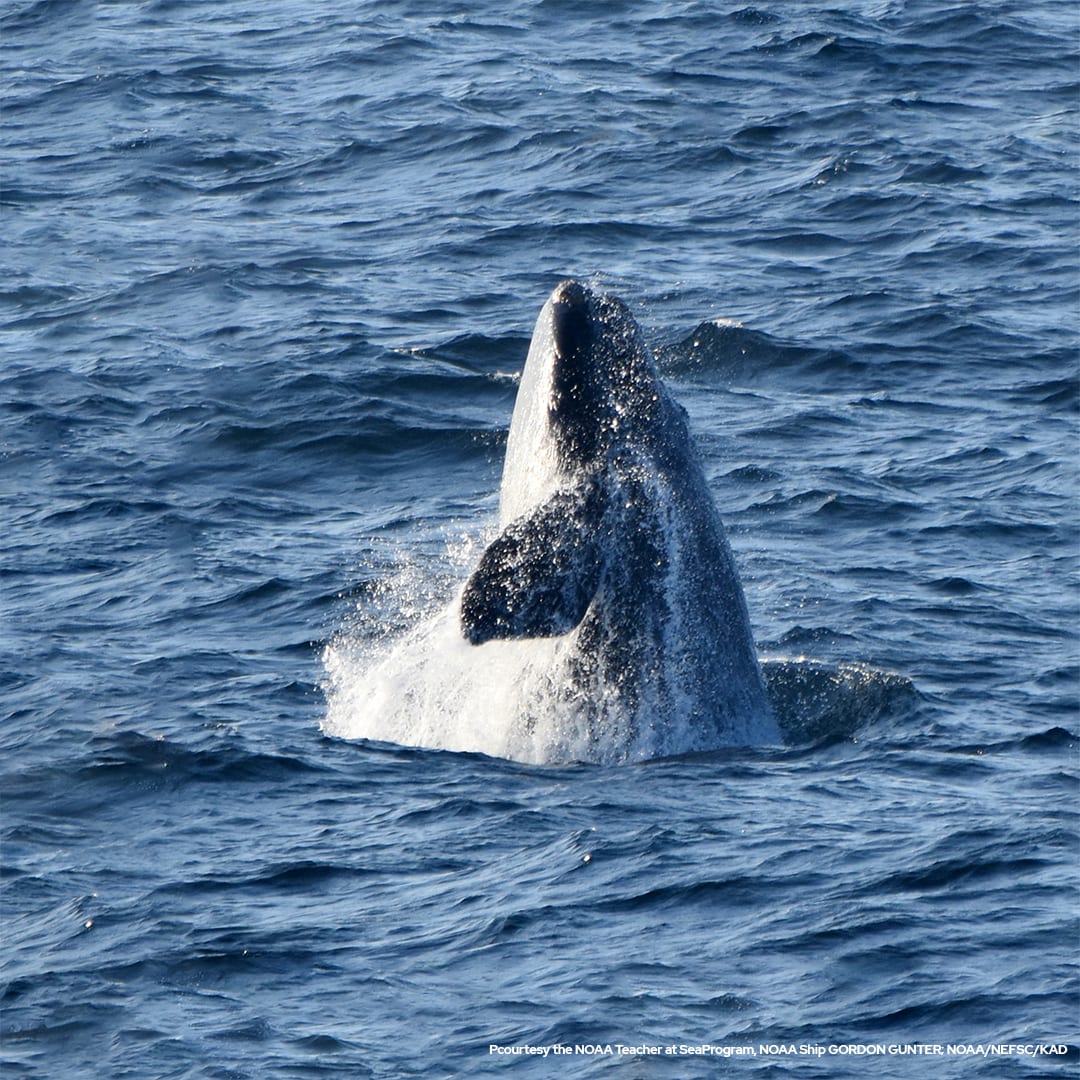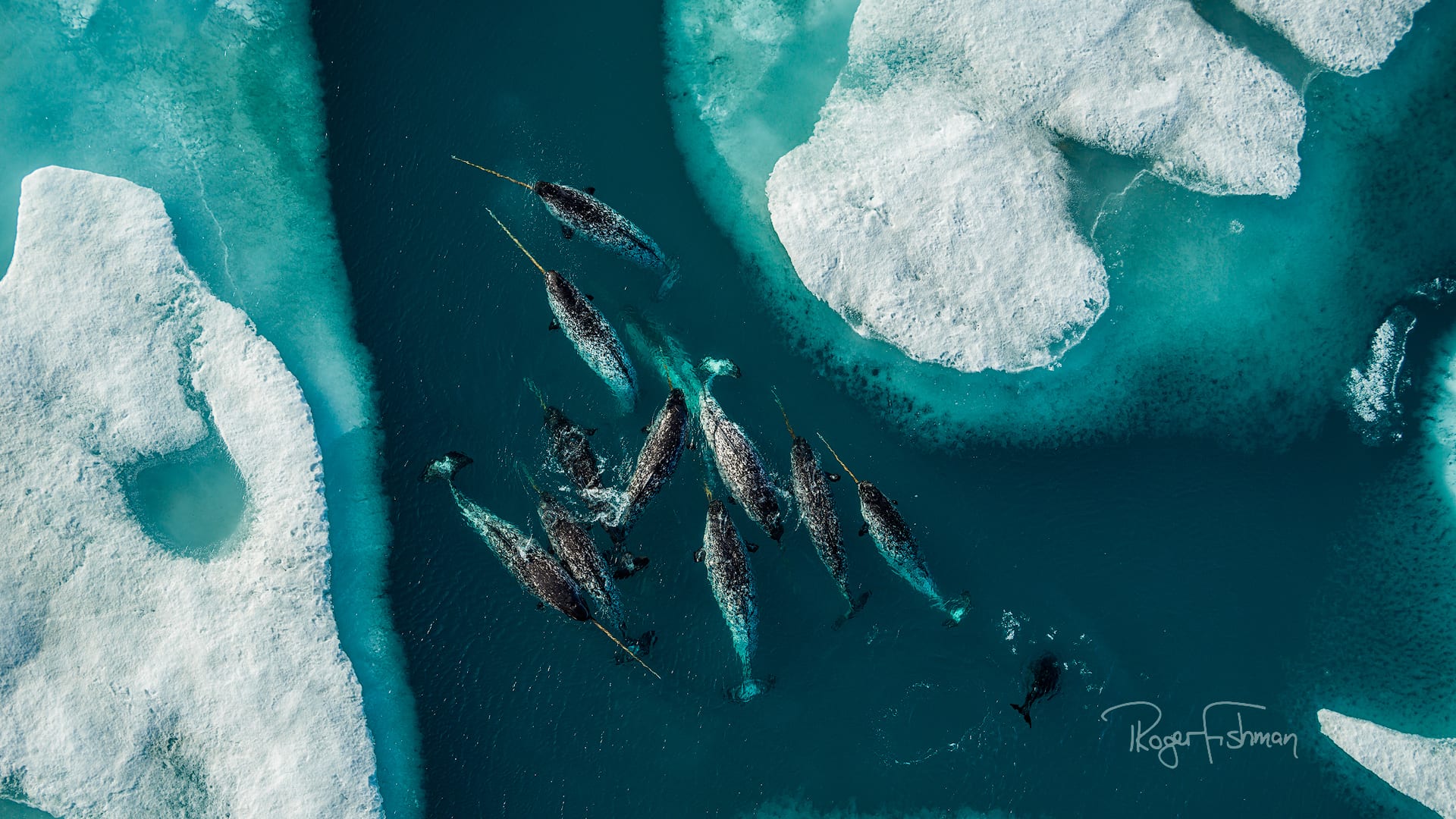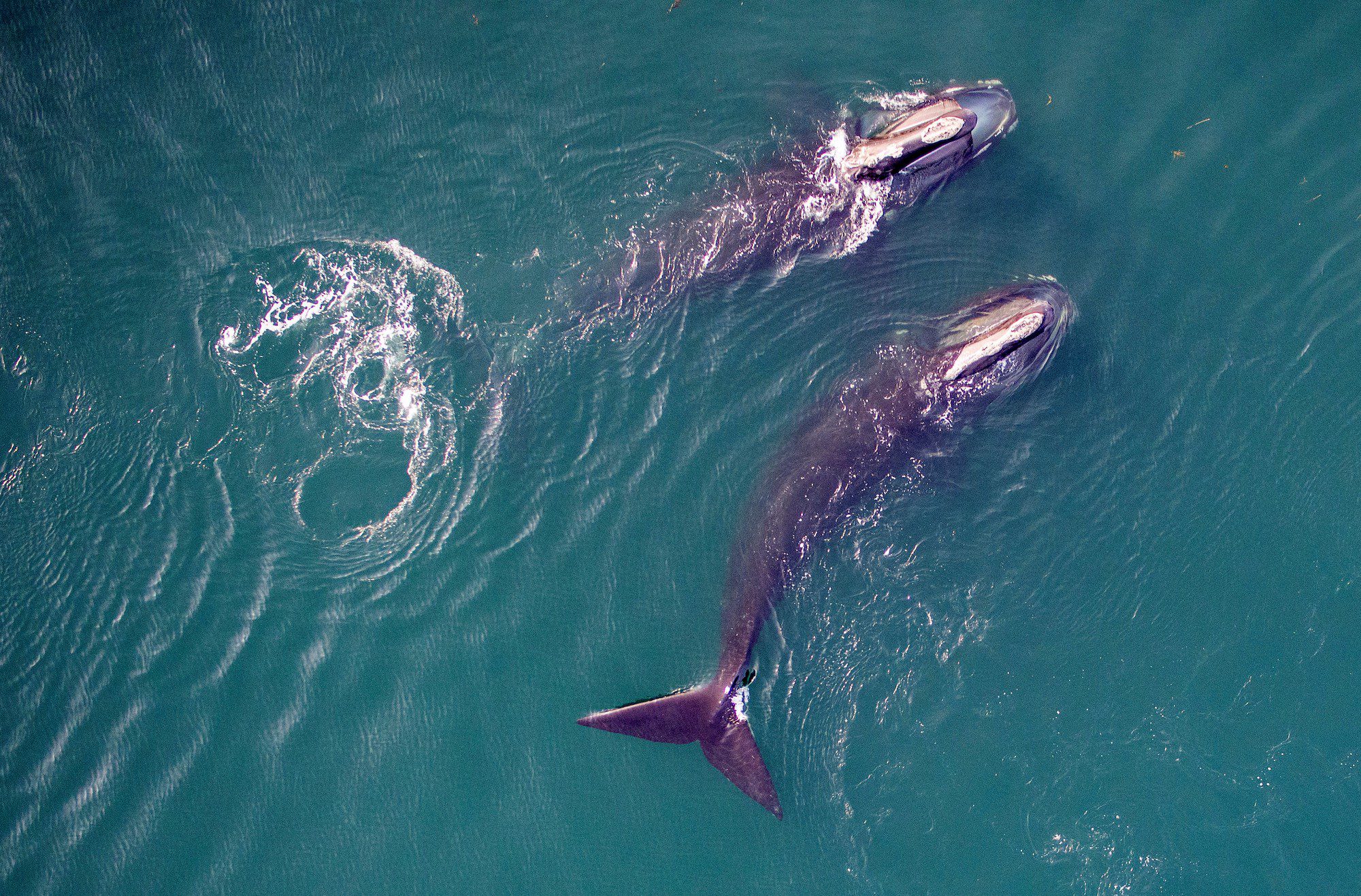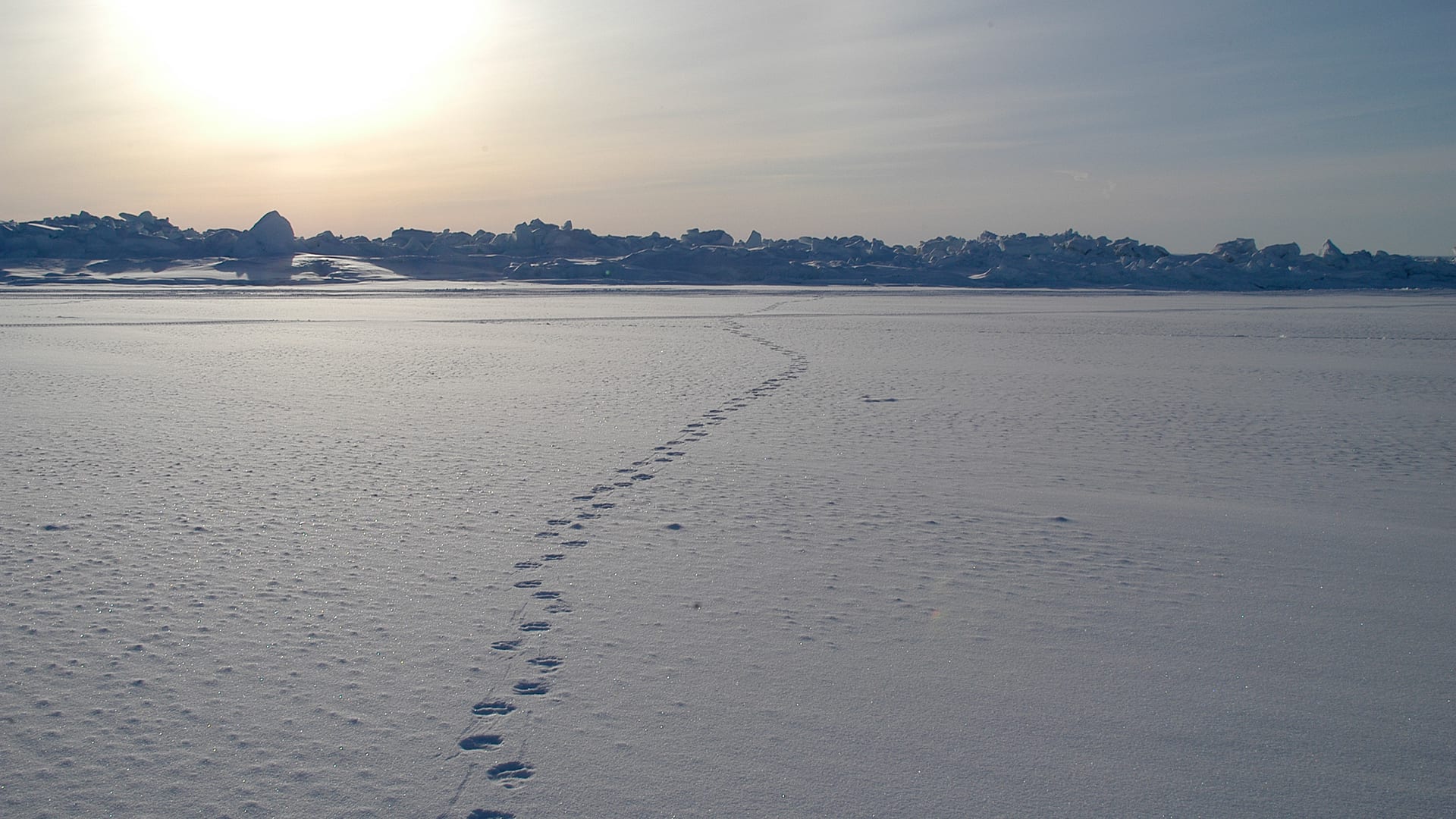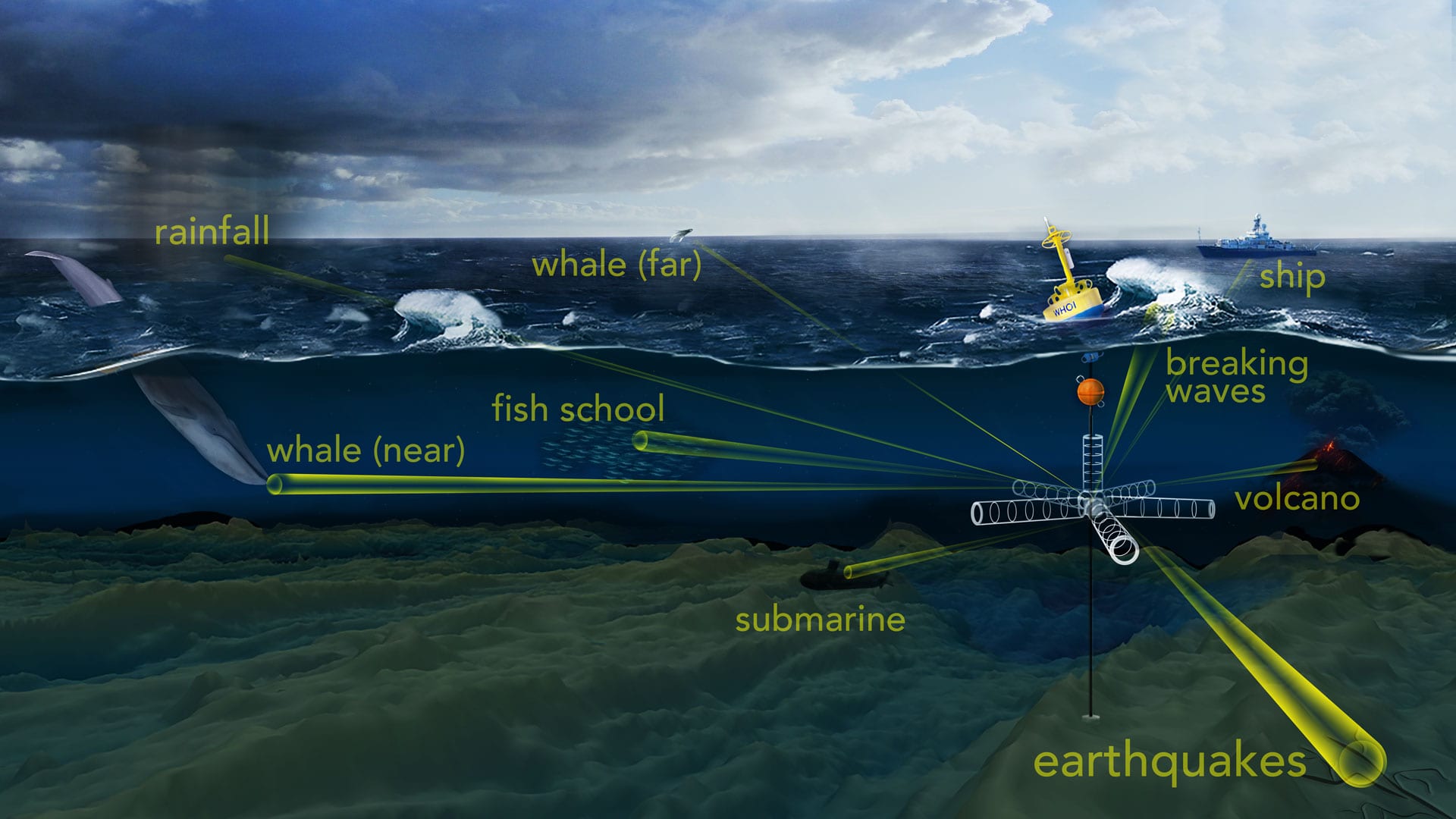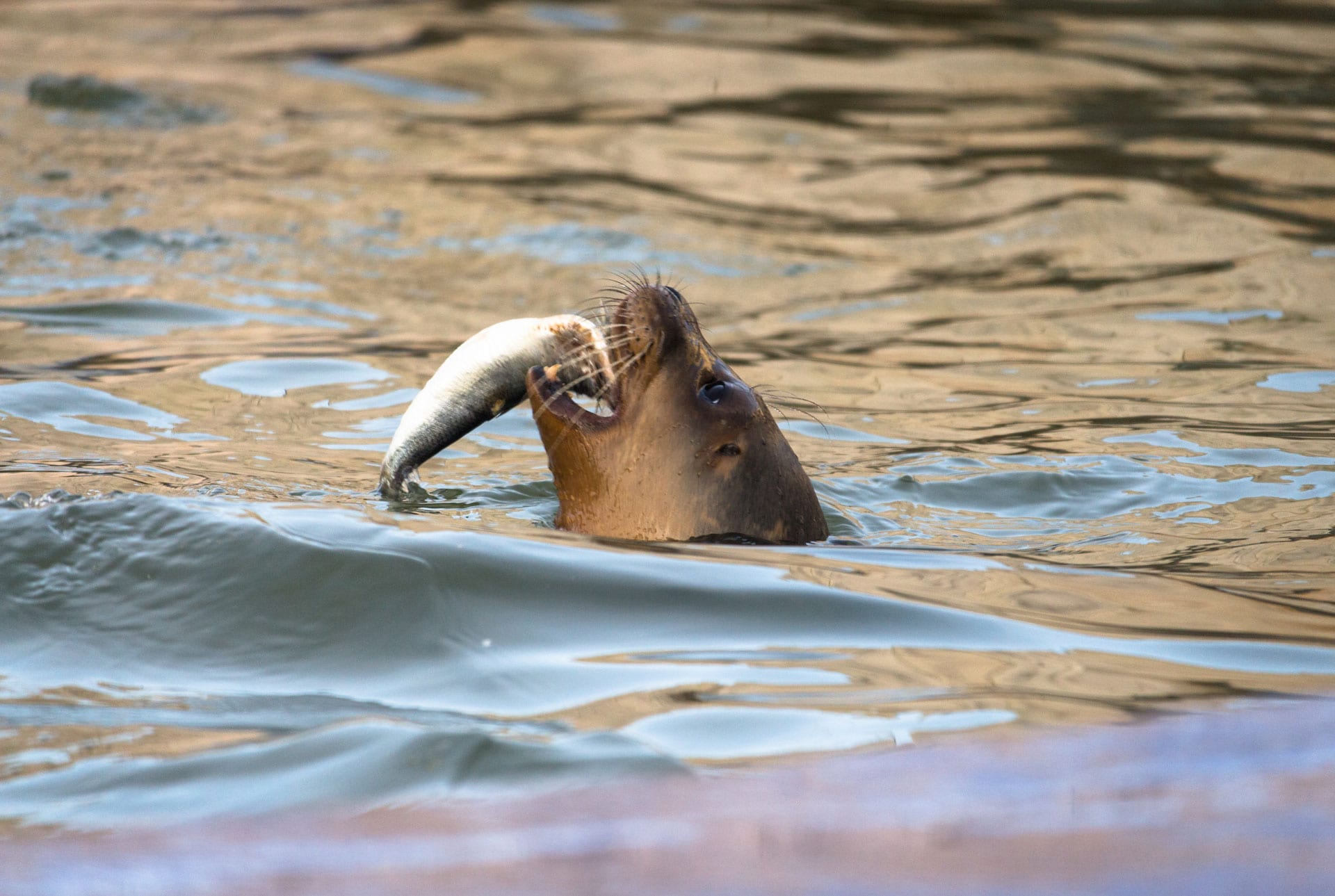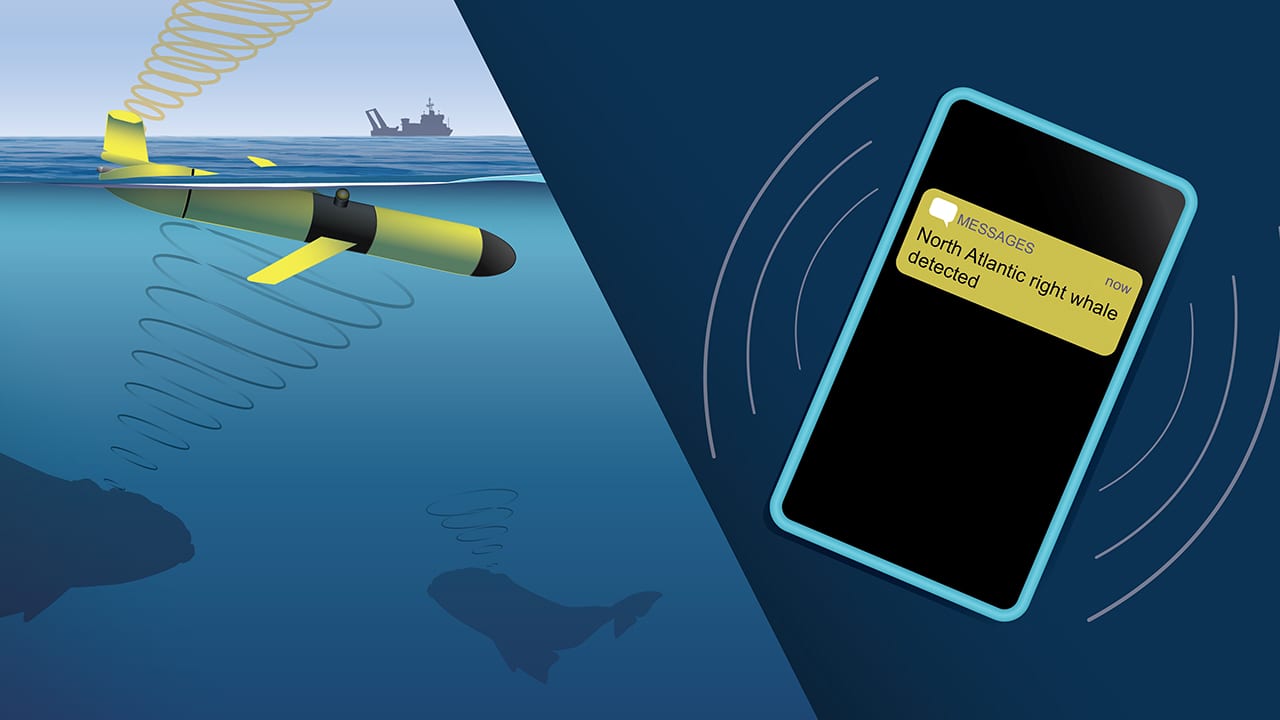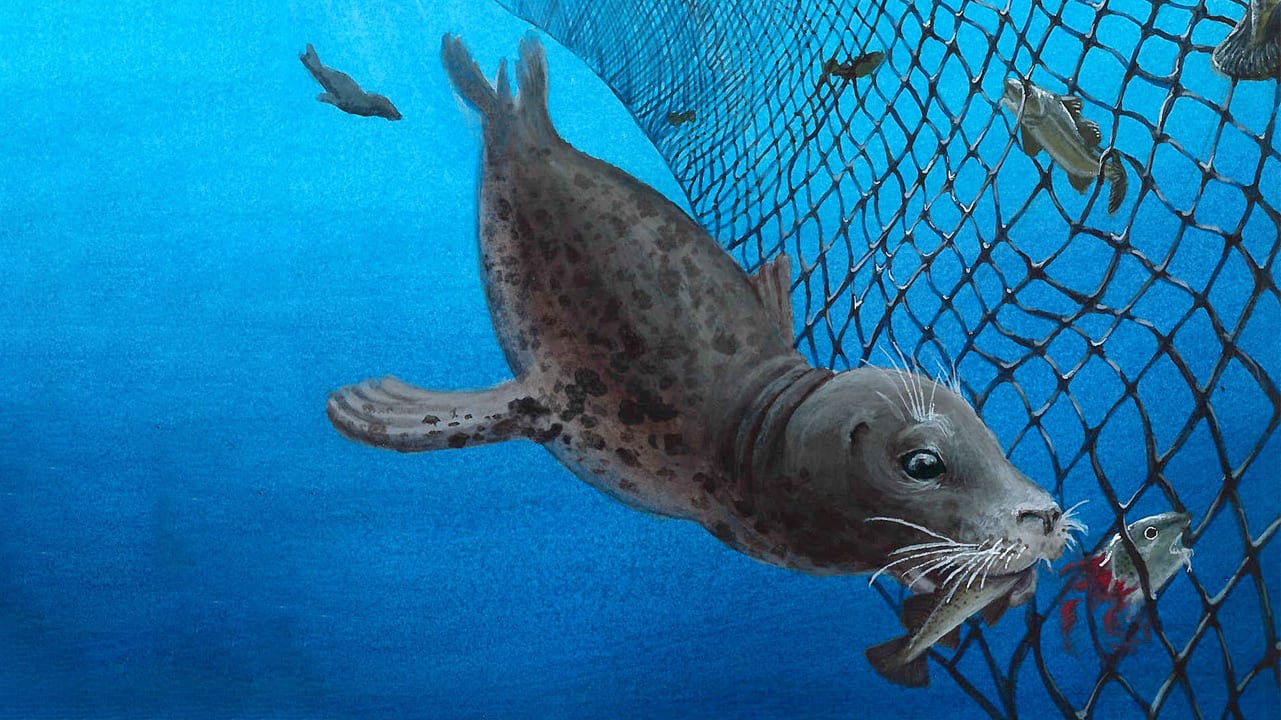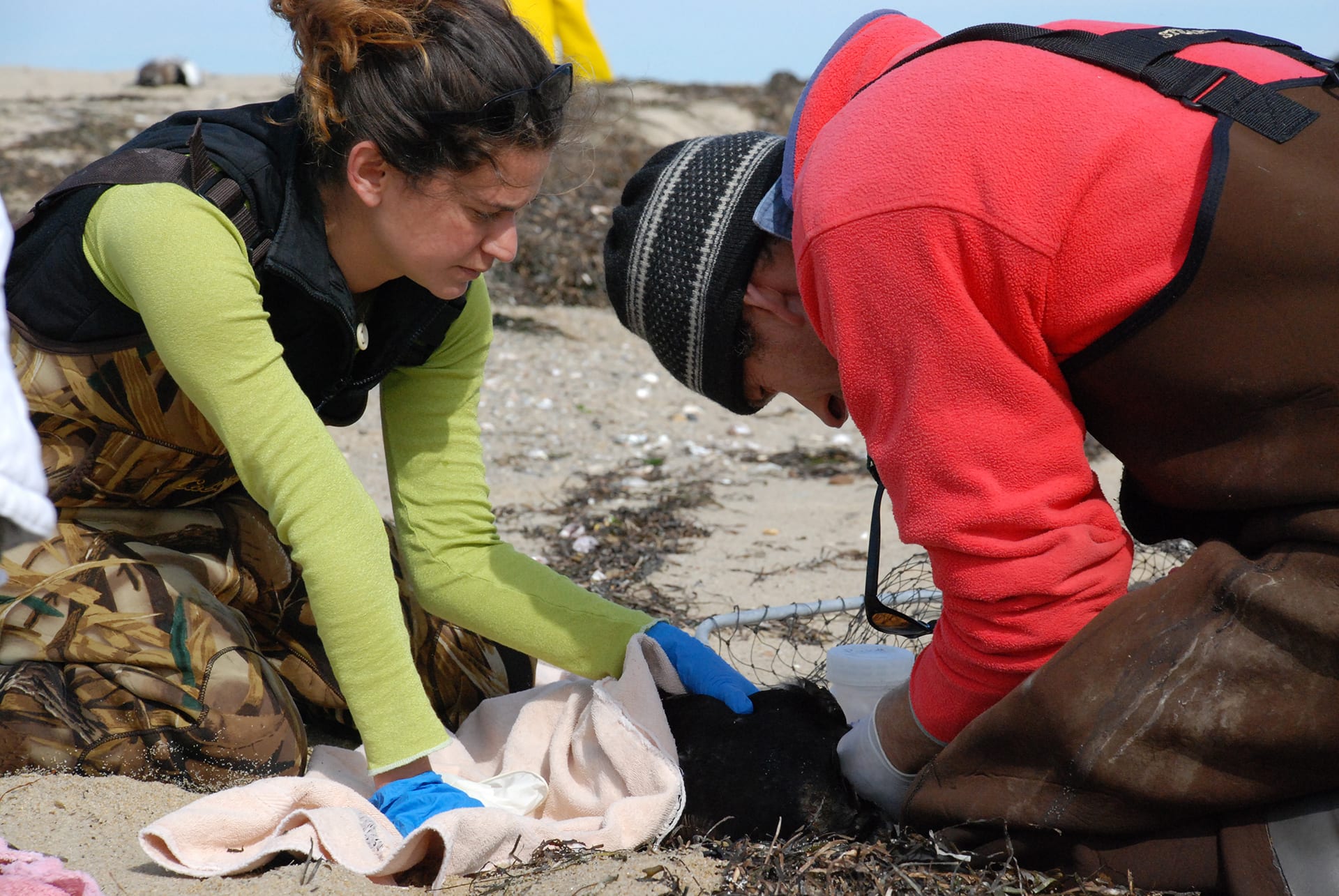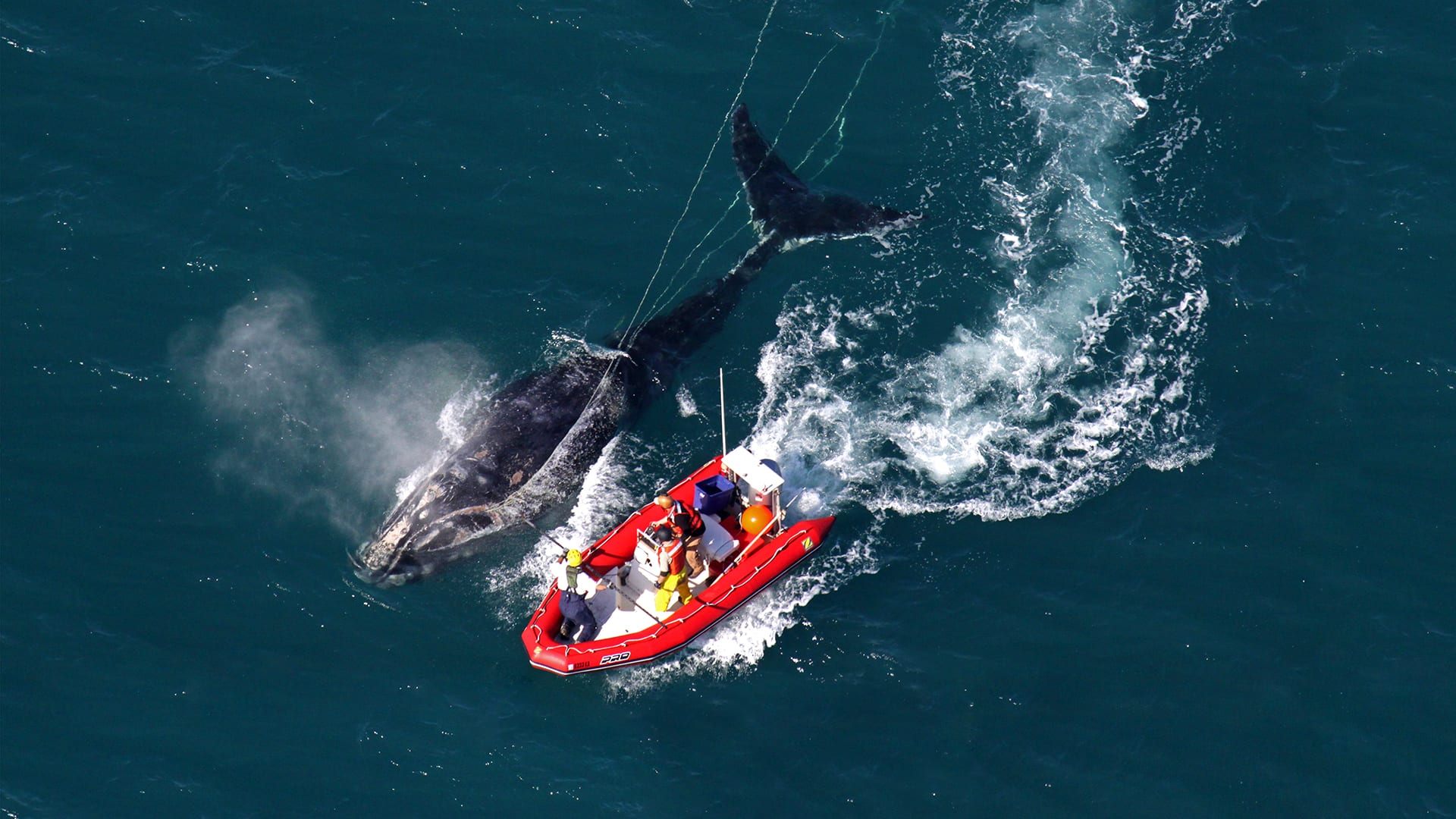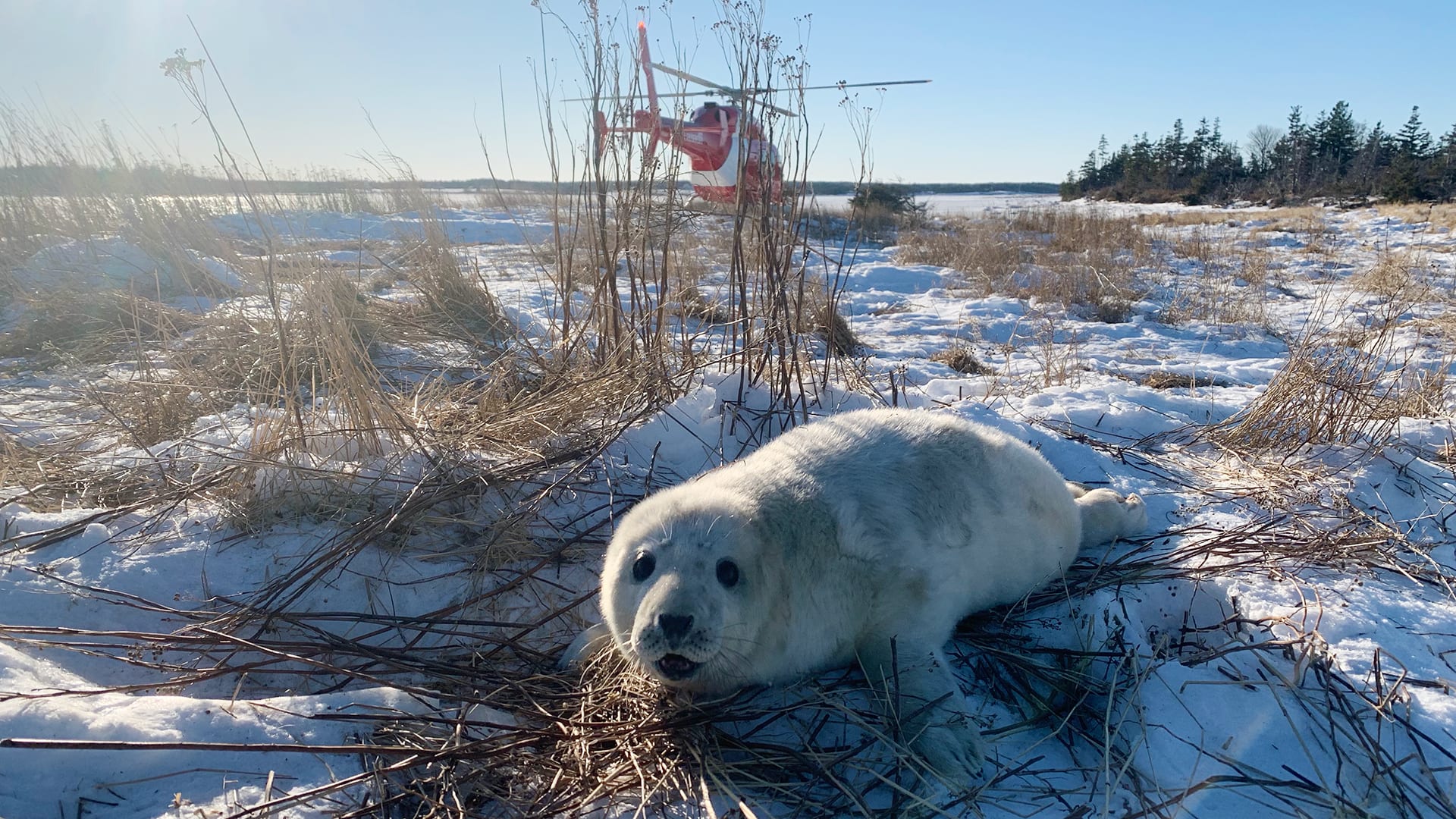News & Insights
WHOI joins effort to accelerate marine life protection technology
WHOI has teamed up with Greentown Labs and Vineyard Wind to launch the Offshore Wind Challenge. The program, which is also partnering with New England Aquarium, calls on entrepreneurs to submit proposals to collect, transmit, and analyze marine mammal monitoring data using remote technologies, such as underwater vehicles, drones, and offshore buoys.
Read MoreEffects of Climate Change and Ocean Acidification on Living Marine Resources
Scott Doney, Senior Scientist Marine Chemistry & Geochemistry Department Woods Hole Oceanographic Institution May 10, 2007 Introduction Good morning Madame Chair, Ranking Member Snowe and members of the Subcommittee. Thank…
Read MoreSmart cameras keep lookout for endangered whales
A ship-mounted thermal imaging system provides real-time detection of whales, which could reduce the number of endangered marine mammals killed by vessels each year.
Read MoreUnicorns of the Arctic face a new potential threat
Narwhals and other marine mammals could be vulnerable to a new threat we’ve become all too familiar with: COVID-19
Read MoreListening to fish with passive acoustics
Scientists at the Woods Hole Oceanographic Institution and NOAA Fisheries combine forces to adapt technologies used to detect marine mammals for fisheries management.
Read MoreRecognizing Massachusetts Right Whale Day
April 24 marks the first-ever Right Whale Day in Massachusetts. WHOI biologist and veterinarian Michael Moore recently met with the resident who brought this special recognition about– and explains why it’s important to raise awareness about the critically endangered North Atlantic right whale.
Read MoreWHOI builds bridges with Arctic Indigenous communities
NSF program fosters collaboration between indigenous communities and traditional scientists, allowing WHOI’s autonomous vehicles to shed light on a changing Arctic
Read MoreTransformative technology to revolutionize the way we listen to the deep ocean
Using a network of satellites and surface buoys, WHOI scientist Ying Tsong (YT) Lin and a team of engineers are creating the first 3D “acoustic telescope,” capable of listening to a range of discrete activities in the deep sea
Read MoreScientists and fishermen team up to film seals in fishing nets
Seals find ease in taking a meal already ensnared in wall-like gillnets cast by fishermen, but at what cost? WHOI biologist Andrea Bogomolni works with the fishing community to record and observe this behavior with the hopes of mitigating marine mammal bycatch
Read MoreTeaming up for right whales
Researchers from WHOI and NOAA combine underwater gliders with passive acoustic detection technology to help protect endangered species from lethal ship strikes and noise from offshore wind construction
Read MoreUnderwater cameras tackle tough questions for fishery
Scientists, in collaboration with commercial fishermen, are using underwater video cameras to document the behavior of seals and other animals in and around fishing nets just east of Cape Cod—an area that has seen steady growth in gray seal populations over the past few years.
Read MoreGlobal Oceans and the Extinction Crisis
WHOI marine biologists Michael Moore and Andrea Bogomolni weigh in on a new United Nations science report suggesting that over one million species are at risk of extinction.
Read MoreUntangling Impacts on Right Whales
Whale scientists look for new ways to mitigate whale entanglements in fishing lines
Read MoreSeal Spy
Drones helps WHOI scientist measure the body mass of mother and pup seals during lactation
Read MoreMichael Moore
» Chasing Bayla: Michael Moore’s quest to free a North Atlantic right whale from fishing gear (The Boston Globe, October 2014) Michael Moore is one of a handful of…
Read MoreHearing on The Harmful Algal Blooms and Hypoxia Research and Control Amendments Act of 2011
before the Subcommittee on Energy and Environment Committee on Science, Space and Technology U.S. House of Representatives June 1, 2011 Mr. Chairman and members of the Subcommittee. I am Donald…
Read MoreHearing on “Harmful Algal Blooms: The Challenges on the Nation’s Coastlines”
Dr. Donald M. Anderson Senior Scientist, Biology Department Woods Hole Oceanographic Institution Director, U.S. National Office for Marine Biotoxins and Harmful Algal Blooms July 10, 2008 Mr. Chairman and members…
Read More
